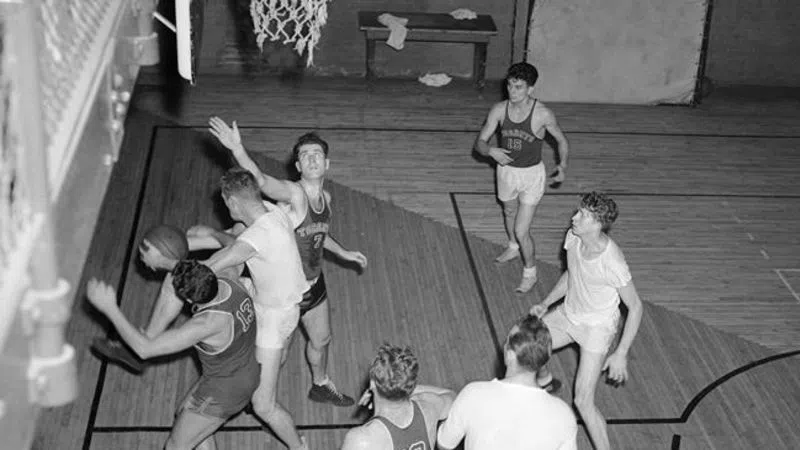
Dogs to Dinos: Toronto’s professional basketball roots run deep
TORONTO — After arriving on the NBA scene in 1995, it took a few years before the Toronto Raptors settled into their current digs at the venue now known as Scotiabank Arena.
The team debuted on a makeshift court at SkyDome and even played a few home games at Maple Leaf Gardens and Hamilton’s Copps Coliseum before making the permanent move to Air Canada Centre.
However, it was in a compact, sweaty, brick-walled facility over a half-century earlier where the city’s pro basketball scene really started to take root.



